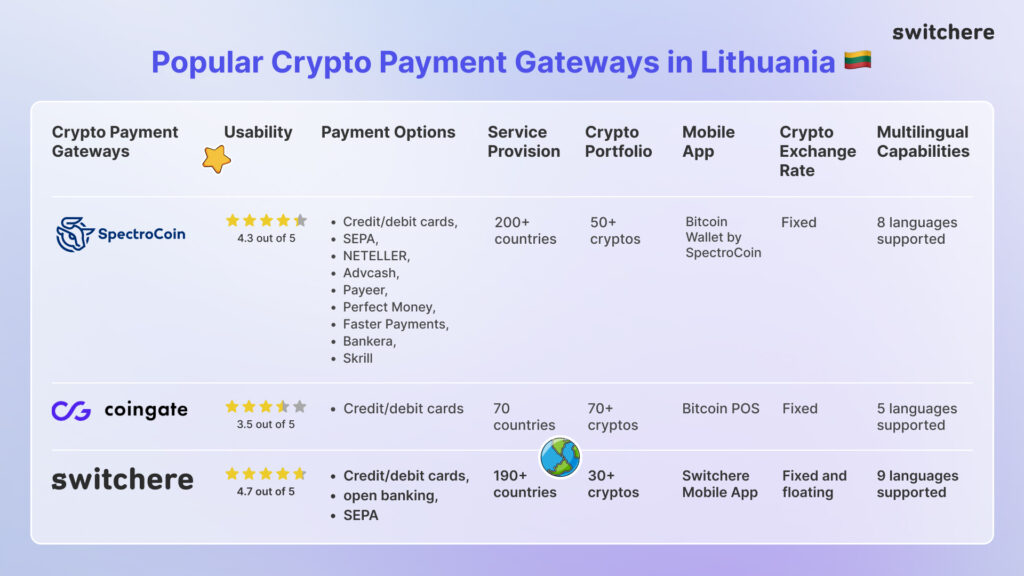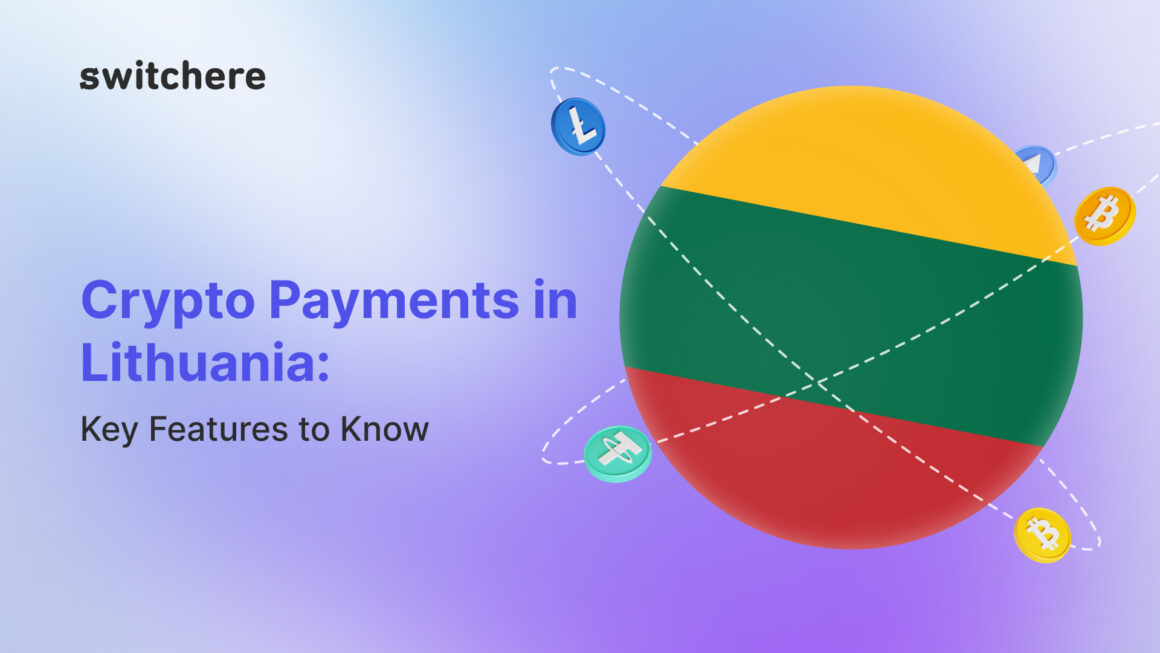Lithuania, a Baltic nation known for its forward-thinking approach to technology, has witnessed a surge in interest in virtual currencies in recent years. As the global financial landscape evolves, businesses in Lithuania are increasingly exploring alternative payment methods. This blog article delves into the legal framework governing virtual currencies in Lithuania, exploring the current status of virtual currencies and crypto payments and providing an in-depth analysis of the key licensing requirements for business entities and crypto payment gateways.
Current Landscape of Virtual Currencies in Lithuania
Lithuania has demonstrated a progressive stance towards virtual currencies, recognizing the potential benefits they bring to the economic sector. The state has not only embraced the technology but has additionally worked towards creating a conducive regulatory environment.
As of the latest information available, Lithuania does not have specific legislation solely dedicated to virtual currencies. Instead, it relies on existing EU directives and national laws to regulate virtual currencies. The Lithuanian government has taken steps to establish a clear legal framework to ensure the legitimacy of virtual currencies while mitigating potential risks.
Virtual Currency Payments in Lithuania
Virtual currency payments have gained popularity in Lithuania, with businesses increasingly accepting digital assets as a means of exchange. The country’s open-minded approach towards financial innovation has facilitated the integration of virtual currencies into mainstream economic activities.
The Bank of Lithuania, the country’s central bank, has been actively exploring the potential of Central Bank Digital Currencies (CBDCs). While this development is separate from private cryptocurrencies, it reflects the authorities’ willingness to explore and adopt digital financial solutions.
Key Licensing Requirements for Businesses
For businesses and crypto payment gateways looking to operate in Lithuania, compliance with regulatory requirements is crucial. While there isn’t specific legislation dedicated to virtual currencies, business entities must adhere to existing financial regulations.
One of the differentiating aspects business entities need to consider is obtaining electronic money institution (EMI) licensing available through the Bank of Lithuania. This legal permission allows companies to offer payment services, issue electronic money, and facilitate virtual currency TXs within legal boundaries.
Additionally, businesses dealing with virtual currencies must implement robust anti-AML and CTF measures. Compliance with these regulations is vital to ensure the integrity of financial TXs and prevent illicit activities within cyberspace.
Best-Known Crypto Payment Gateways in Lithuania

SpectroCoin
SpectroCoin, a Lithuanian-born platform, has positioned itself as an all-in-one solution for virtual services. Beyond payment processing, SpectroCoin offers virtual currency wallets, exchange services, and prepaid bank cards. Merchants in Lithuania can integrate SpectroCoin’s crypto solutions in a rather speedy and comfortable manner. The platform’s comprehensive approach appeals to business entities looking for a one-stop shop for their crypto-related needs.
CoinGate
Established about a decade ago, the platform enables business entities to accept diverse virtual currencies, including USDT, TRX, ELK, EOS, DOGE, BTC, and so on and so forth. CoinGate offers user-friendly plugins for popular e-commerce platforms like WooCommerce and Magento. With a clear fee pricing algorithm and real-time settlement in euros, CoinGate renders a reliable and efficient solution for merchants of all sizes.
Switchere
Switchere virtual currency exchange services are available in 170 countries worldwide, and the company is headquartered in Lithuania, the European Union. It is duly regulated and complies with all international laws and regulatory norms.
The company renders turn-key B2B crypto-related services, including crypto payment gateways, fiat on-ramping, and NFT checkout solutions.
Even more than that, Switchere is a perfect choice for Lithuania-based business entities because the company is registered in Vilnius, Lithuania. In short, due to Switchere’s reputation, brand recognition, and all-in-one crypto-related service, the company deserves attention in terms of business partnership collaboration and business expansion to other markets.
Conclusion
Summarily, the spreading of virtual currency payment gateways in Lithuania signifies a progressive shift in the nation’s financial landscape. As businesses embrace the potential benefits of cryptocurrencies, virtual currency payment gateways offer an easy entry point to financial innovation. As the crypto ecosystem continues to evolve, the use of these payment gateways is likely to become more widespread, paving the way for a more inclusive and technologically advanced financial environment in Lithuania.
